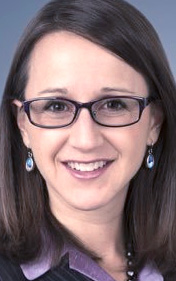

 Almost three years ago, I published a blog post on CircleID titled "Internet Governance: Why Africa Should Take the Lead." I argued that African Internet stakeholders use a 'wait and see approach' in matters as critical as Internet governance," and that African voices are missing in key Internet governance discussion fora. Additionally, I suggested that some reasons for this approach, including that Africa lacks well-trained Internet governance experts and Africans see foreign affairs and international relations as an East versus West dynamic.
Almost three years ago, I published a blog post on CircleID titled "Internet Governance: Why Africa Should Take the Lead." I argued that African Internet stakeholders use a 'wait and see approach' in matters as critical as Internet governance," and that African voices are missing in key Internet governance discussion fora. Additionally, I suggested that some reasons for this approach, including that Africa lacks well-trained Internet governance experts and Africans see foreign affairs and international relations as an East versus West dynamic.
 On the face of it, the answer is a rather obvious and simple "yes"! The Internet obviously works across borders. Technically, it is a global network servicing its users wherever they may be on the planet. But it is this very nature -- the fact that the Internet is not bound to a specific country or territory -- which has more and more people asking themselves whether it can really work across borders.
On the face of it, the answer is a rather obvious and simple "yes"! The Internet obviously works across borders. Technically, it is a global network servicing its users wherever they may be on the planet. But it is this very nature -- the fact that the Internet is not bound to a specific country or territory -- which has more and more people asking themselves whether it can really work across borders.
Last week, millions of infected devices directed Internet traffic to DNS service provider Dyn, resulting in a Distributed Denial of Service (DDoS) attack that took down major websites including Twitter, Amazon, Netflix, and more. In a recent blog post, security expert Bruce Schneier argued that "someone has been probing the defences of the companies that run critical pieces of the Internet". This attack seems to be part of that trend. This disruption begs the question: Can we trust the Internet?
 There is no doubt that the number of online consumers is on a rise and that this is a trend that will not stop any time soon. Over the last couple of years, the number of digital buyers has grown by a steady 150 million each year. This number is expected to stay stable for a few more years to come. By 2020, about two billion people will be purchasing things online and making online money transactions on a regular basis.
There is no doubt that the number of online consumers is on a rise and that this is a trend that will not stop any time soon. Over the last couple of years, the number of digital buyers has grown by a steady 150 million each year. This number is expected to stay stable for a few more years to come. By 2020, about two billion people will be purchasing things online and making online money transactions on a regular basis.
 DDoS attacks, phishing scams and malware. We battle these dark forces every day - and every day they get more sophisticated. But what worries me isn't just keeping up with them, it is keeping up with the sheer volume of devices and data that these forces can enlist in an attack. That's why we as an industry need to come together and share best practices - at the ICANN community, at the IETF and elsewhere - so collectively we are ready for the future.
DDoS attacks, phishing scams and malware. We battle these dark forces every day - and every day they get more sophisticated. But what worries me isn't just keeping up with them, it is keeping up with the sheer volume of devices and data that these forces can enlist in an attack. That's why we as an industry need to come together and share best practices - at the ICANN community, at the IETF and elsewhere - so collectively we are ready for the future.
 Bruce Schneier's recent blog post, "Someone is Learning How to Take Down the Internet", reported that the incidence of DDOS attacks is on the rise. And by this he means that these attacks are on the rise both in the number of attacks and the intensity of each attack. A similar observation was made in the Versign DDOS Trends report for the second quarter of 2015, reporting that DDOS attacks are becoming more sophisticated and persistent in the second quarter of 2016.
Bruce Schneier's recent blog post, "Someone is Learning How to Take Down the Internet", reported that the incidence of DDOS attacks is on the rise. And by this he means that these attacks are on the rise both in the number of attacks and the intensity of each attack. A similar observation was made in the Versign DDOS Trends report for the second quarter of 2015, reporting that DDOS attacks are becoming more sophisticated and persistent in the second quarter of 2016.
 Sue Schuster from Neustar Registry Services sits down with Carmen A. Catizone, MS, RPh, DPh Executive Director of the National Association of Boards of Pharmacy (NABP) for online pharmacies and prescription-only medications to chat about the benefits this exciting new partnership and what it means for members and consumers.
Sue Schuster from Neustar Registry Services sits down with Carmen A. Catizone, MS, RPh, DPh Executive Director of the National Association of Boards of Pharmacy (NABP) for online pharmacies and prescription-only medications to chat about the benefits this exciting new partnership and what it means for members and consumers.
 Today, June 26, is the final day that you can help the Internet Society with its "Future of the Internet" survey. It takes about 20-25 minutes and will help my colleagues at the Internet Society develop a number of scenarios about the possible future of the Internet. These scenarios can help all of us in talking to policy makers, leaders, media and the general user population about the choices we have before us for the future of the Internet.
Today, June 26, is the final day that you can help the Internet Society with its "Future of the Internet" survey. It takes about 20-25 minutes and will help my colleagues at the Internet Society develop a number of scenarios about the possible future of the Internet. These scenarios can help all of us in talking to policy makers, leaders, media and the general user population about the choices we have before us for the future of the Internet.
 Hacking remains a huge problem for businesses. As noted by MarketWatch, more than 175 data breaches have already happened this year, and in 2015 approximately 105 million adults in the United States had their personal information stolen. For companies, the stakes are huge: Compromised systems not only damage the bottom line but can severely impact public opinion.
Hacking remains a huge problem for businesses. As noted by MarketWatch, more than 175 data breaches have already happened this year, and in 2015 approximately 105 million adults in the United States had their personal information stolen. For companies, the stakes are huge: Compromised systems not only damage the bottom line but can severely impact public opinion.
 As I wrote in December 2015, some Internet commerce companies - including domain name registries, registrars, advertising providers, social media platforms, payment processors and shippers - are doing right by patients in taking voluntary action against illegal online drug sellers. This is no small feat as 97% of the roughly 35,000 active online drug sellers are operating illegally.
As I wrote in December 2015, some Internet commerce companies - including domain name registries, registrars, advertising providers, social media platforms, payment processors and shippers - are doing right by patients in taking voluntary action against illegal online drug sellers. This is no small feat as 97% of the roughly 35,000 active online drug sellers are operating illegally.